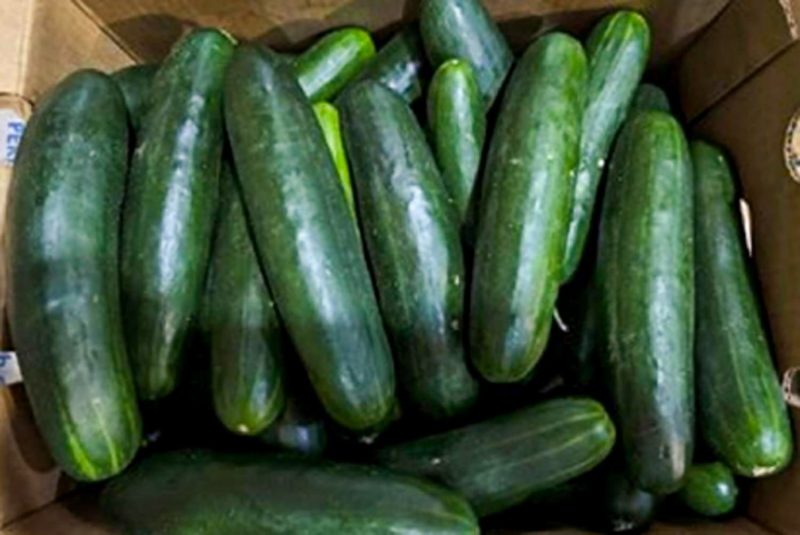Cucumber consumption is a healthy habit for many Americans, with these versatile vegetables making appearances in salads, sandwiches, and even in cocktails. But in a recent batch of retail cucumbers, health hazards were identified, leading to widespread concern and a significant product recall. The Centers for Disease Control and Prevention (CDC) reported that these recalled cucumbers were linked to at least 449 reported illnesses, marking a threat to public health.
The cucumbers, which were sold from unidentified grocery stores, were contaminated with Salmonella, a bacterium that causes foodborne illnesses. While the symptoms of Salmonella poisoning – including diarrhea, fever, and abdominal cramps – may not sound severe, they can be life-threatening in specific vulnerable populations such as children, the elderly, and individuals with weak immune systems.
The CDC oversaw the effort to recall the tainted cucumbers once the connection between the food item and the surge in disease cases was established. Strikingly, the contamination not only triggered illness in consumers directly but also increased the risk of cross-contamination, multiplying the chances of more infections. For instance, with improper hand washing, the bacterium could be transferred onto other food items or surfaces in the kitchen, leading to additional cases of infection.
The CDC worked hand in hand with state health officials and other partners to trace the source of the infection. Proving the epidemiological link between the cucumbers and the outbreak was a critical step in the investigation process. This tracking led to the voluntary recall of the batch by the suppliers, halting further sale and distribution. The exact number of total recalled cucumbers remains undisclosed, but given the wide-ranging impact, it is estimated to have been substantial.
Despite the product’s recall, the outbreak further highlighted the importance of stringent food safety systems. The incident urged the need for robust protocols when growing, harvesting, and distributing food items, particularly fresh produce that is often consumed raw. Farms, suppliers, and retailers must maintain stringent sanitation and packaging practices to prevent such future occurrences.
In the immediate aftermath of the recall, the CDC issued advice for consumers who may have bought the cucumbers in question. This included promptly discarding any suspicious cucumbers and thorough cleaning of the refrigerator drawer or shelf where the vegetables may have been stored to avoid cross-contamination. They also stressed on the continued significance of hand hygiene for the prevention of disease spread.
This incident served as a reminder of the adverse effects foodborne pathogens like Salmonella can impose on public health. It reinforced the belief that food safety should not be compromised at any level and reiterated the necessity for efficient and swift action when such issues occur.
In conclusion, the cucumber recall tied to 449 illnesses exemplified the severe implications of neglecting food safety standards. It additionally showcased the tremendous efforts of agencies like the CDC in protecting the health of the public and highlighted that consumers also play a critical role in preventing the spread of foodborne illnesses.




